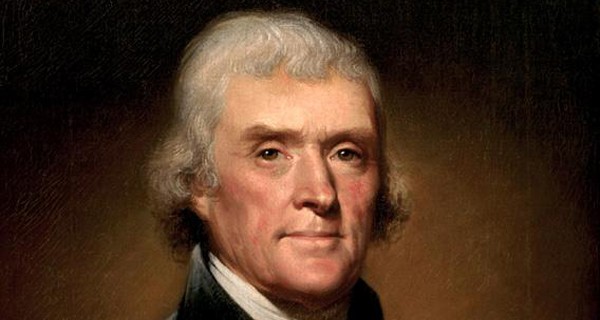
As the presidential campaign came to a close, religious questions sneaked surreptitiously into the national debate. The Democrats had an easy target: Governor Romney’s unusual religious affiliation, though since few Democrats know anything about any religion, particularly Christianity, they found it difficult to distinguish Mormonism from other not quite so strange semi-Christian sects. Watching national commentators fumbling for words, I was reminded of the media reaction to Jimmy Carter’s declaration that he was a born-again Christian. The national dailies and weeklies actually had to run major stories explaining what the phrase meant.
Some Evangelicals responded by changing their position on the LDS. The people who run Billy Graham’s website “Mormonism” went so far as to remove Mormonism from a list of cults. Since the best defense is a good offense, the Republican Christianists went on the attack, excoriating President Obama and his Party for subtly shifting their advocacy of religious freedom to a defense of “freedom of worship,” a phrase that has been kicking around the dusty corridors of professional religiosity for some time.
Freedom of religion, as we have all heard in sermons and editorials, goes beyond the right to assemble and worship in the proverbial “church of your choice.” Religious freedom is the right to live out the life prescribed by religion: to wear religious garb and symbols, preaching the faith in public, doing all such good works that the faithful have been instructed to perform.
Alarmists can point to the shifting rhetoric of rights as enunciated by the UN Secretary General.
In connection with Freedom of Worship, there is also the ambiguity of the UN Secretary General’s recent remarks on the freedom of expression which is absolute–so long as you offend no one (except Christians).
All human beings have the inalienable right to freedom of expression, freedom of assembly. These are very fundamental rights. But, at the same time, this freedom of expression should not be abused by individuals. Freedom of expression should be and must be guaranteed and protected, when they are used for common justice, common purpose. When some people use this freedom of expression to provoke or humiliate some others’ values and beliefs, then this cannot be protected in such a way. So, my position is that freedom of expression, while it is a fundamental right and privilege, should not be abused by such people, by such a disgraceful and shameful act.So it is the rulers of states and (in the Secretary General’s imagination) the world, who get to decide what we are free to say and how we are free to worship.
The Deseret News—owned and controlled by the LDS organization—weighed in: “But worshiping within a sanctuary constitutes just one facet of a living faith. Religious institutions and believers realize their vocations most fully when engaged in ministering to the sick, caring for the poor, counseling the poor in spirit, educating the rising generation and promoting integrity in society.”
This all sounds rather nice, but (as I explained in a recent column) when Christianists try to turn it into an ultimate creed, they run afoul of religions that persecute other religions or engage in disagreeable acts. Christianists then fall back on the position that freedom of religion is to be permitted except where exercise of that freedom conflicts with longstanding moral and legal traditions, such as prohibitions on murder, or even with more recent revelations on the rights of women, children, and brute beasts.
As an aside, let me point out the obvious flaw: None of the great monotheisms, compared with Greco-Roman or Egyptian paganism, has much of a track record on tolerance and religious freedom. The Romans did cracked down on the Druids, both for human sacrifice and for their agitation against imperial government, and they sporadically persecuted Christians, mostly for their alleged misanthropy and lack of patriotism. However, the Greeks and Romans did not care what you believed, so long as you paid lip service to the religion of the city or of the empire.
Religious freedom may well be the prudent thing for Christians of this age, but it was non-Christian liberals like Mr. Jefferson who promoted the idea of toleration of dissent. “Error of opinion,” he intoned in his inaugural address, “may be tolerated where freedom is left to combat it.” Note, by the way, that Jefferson used the word may as opposed to must. He was not so foolish as to declare an absolute freedom of opinion and expression.
President Jefferson was, of course, speaking of political opinions, but he would have cheerfully applied the same rule to religion, if only because he was largely indifferent to all religions. His family, friends, and neighbors were all—to one extent or another—Christians, mostly Anglicans, and he had no quarrel with a superstition (as he certainly regarded Trinitarian Christianity) that taught kindness, charity, thrift, and personal responsibility.
When liberal deists, agnostics, and atheists declare themselves in favor of religious freedom, there is no paradox or anomaly, because toleration of diversity is a liberal but not a Christian virtue. As a postmodern man living in a postChristian world, I freely acknowledge the practical advantages of religious freedom, but as a Christian I am not naïve enough to believe that this doctrine was taught by Christ and his Apostles or by the great doctors of the Church. Nor do we find it in the great reformers—Calvin was as an enthusiastic a persecutor as Torquemada.
Freedom of religion, then, is the creed of the anti-Christian liberal tradition that has always wanted to stick Christianity in a box that can be put safely away in some Lost Articles depot. When they are more honest, anti-Christians speak openly of “freedom from religion,” which is the real meaning of the campaign for religious tolerance.
This column first appeared October 19, 2012 on the Daily Mail (London) website and is reprinted with permission.


No comments:
Post a Comment